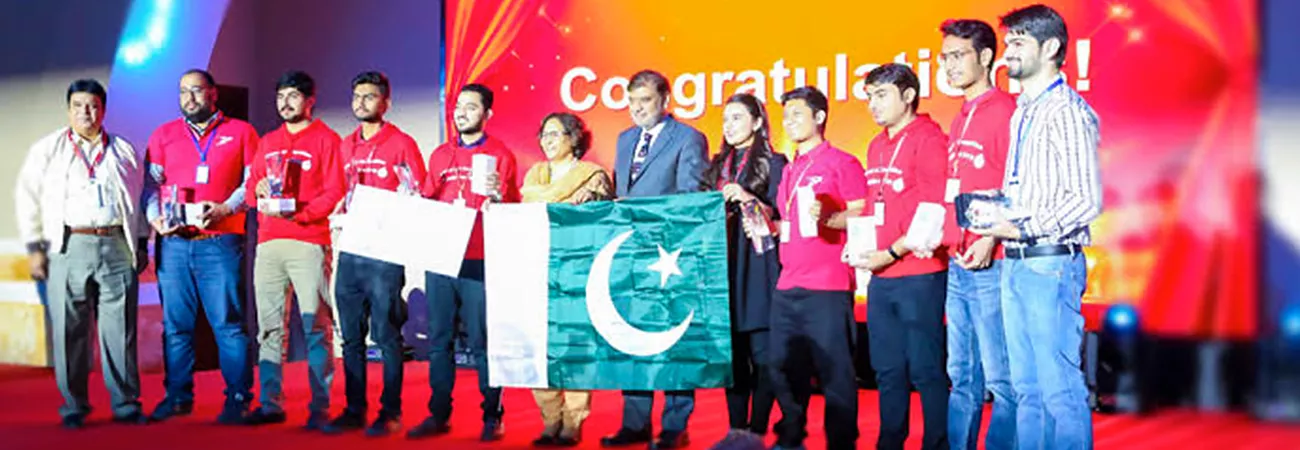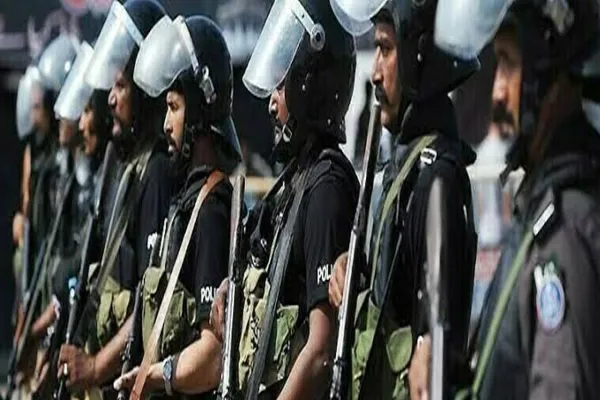i NEWS PAKISTAN
Huawei IT company constantly engaged in fostering talent development to strengthen Pakistan’s ICT infrastructure, Gwadar Pro reported on Saturday. According to the report, the company that has contributed vastly to technological shift is Huawei Technologies Pakistan; for the past 24 years, other than providing B2B ICT solutions and services in Pakistan, the company has always been actively involved in technology transfer and local talent training in order to promote the development of the youth. One of Huawei’s most prestigious programs to cultivate local ICT talent and sow its investment in the country’s potential has been an annual international ICT competition that allows the winners of the domestic chapter of the competition to travel to China to compete in the final for a grand prize of US $ 20,000.
It provides them with hands-on experience with exposure to other motivated, innovative, youthful individuals from all over the world to create an environment of progress and mutual learning. In the last competition, more than 15,000 students and 450 universities across Middle East countries enrolled in the Huawei ICT Competition, of which 1000 students got the Huawei certification. Being an international competition, it is one of the most influential events in its field. Star pupil of team one, under the mentorship of Muhammad Salman from Huawei’s Academy Support Center at UET Lahore, Bhagchand Meghwar won despite coming from humble beginnings, stating, “I come from a village where there aren’t a lot of resources on hand, so it is like a dream for me to win such a prestigious competition.” Pakistani teams were shining stars at the final competition stage in Riyadh.
After going through a rigorous test, they proved their own capability, securing the first and second positions. A significant milestone that marked the start of a new chapter in the life of these students, their future career development and preparedness to be an active future contributor to Pakistan. At the awards ceremony, Chief Guest President Alvi said, "I am aware of the cooperative arrangement of the Huawei Academy with about 80 different universities in Pakistan to develop and groom young talent. I also appreciate companies like Huawei for training a large number of students in the field of information technology”, noting that international companies wanted to create an ecosystem for harnessing talent. MOITT Secretary Muhammad Sohail Rajput said, "If we want to increase our exports and reduce our trade deficit, the only way is to invest in our youths because they are our biggest asset. And the most suitable avenue for investing in youth and talent is IT.
Under the president's leadership, we are putting more investment in the ICT sector so that Pakistan can achieve its targets in the short-, medium-, and long-term." In the upcoming Global finals from 17-22 June 2022, Bhagchand is set to take the global stage along with his esteemed teammates, aiming to win at that level as well. Such examples showcase that if incentivised and facilitated, the technology industry could help overcome the current account deficit of the country by boosting exports as well as addressing the issue of unemployment. Huawei is not simply the Chinese connection, nor the fact that Huawei is a business that has been operating in Pakistan before there was a gargantuan project intended to lift Pakistan’s economy, that makes Huawei such a prominent figure in this rapidly progressing game — it is their demonstrated dedication to the cause of long-term projects in the furthering of Public-Private Partnerships throughout the nation.
Huawei’s successes might only be tangible in the future, but their investment into the talent ecosystem, as well as the safeguarding of Pakistan’s ICT future, will provide a labour cushion for the Pakistan that we cannot yet envision, but for which all this work is being done: a Pakistan that is digital, connected, and thoroughly intelligent in all respects. In Pakistan, and in countries across the globe, the Covid-19 pandemic has accelerated the growth of tech ecosystems, due to the growing human capital in the country and rising investments in technology startups. Multiple news publications in Pakistan reported that start-ups had raised US 240 million dollars in investment in 2021. The figure was US$ 66 million in 2020. Technology has the potential to fundamentally alter how the government works in Pakistan and can help fundamentally alter the cost, effectiveness, transparency, and efficiency of government.
To strengthen this promising dynamic for the future development of Pakistan, it is more necessary than ever to support digital talent. As a country of 220 million people, almost two-thirds of whom are under the age of 30, Pakistan draws natural comparisons to Indonesia — which has rapidly emerged as one of the most vibrant technology ecosystems outside the U.S. and China. The rapid emergence of Pakistan’s technology ecosystem on the international stage has been no accident — it’s the result of a confluence of changing facts on the ground and shifting dynamics in talent development as a result of the pandemic, the report added.
Credit:
Independent News Pakistan-INP









